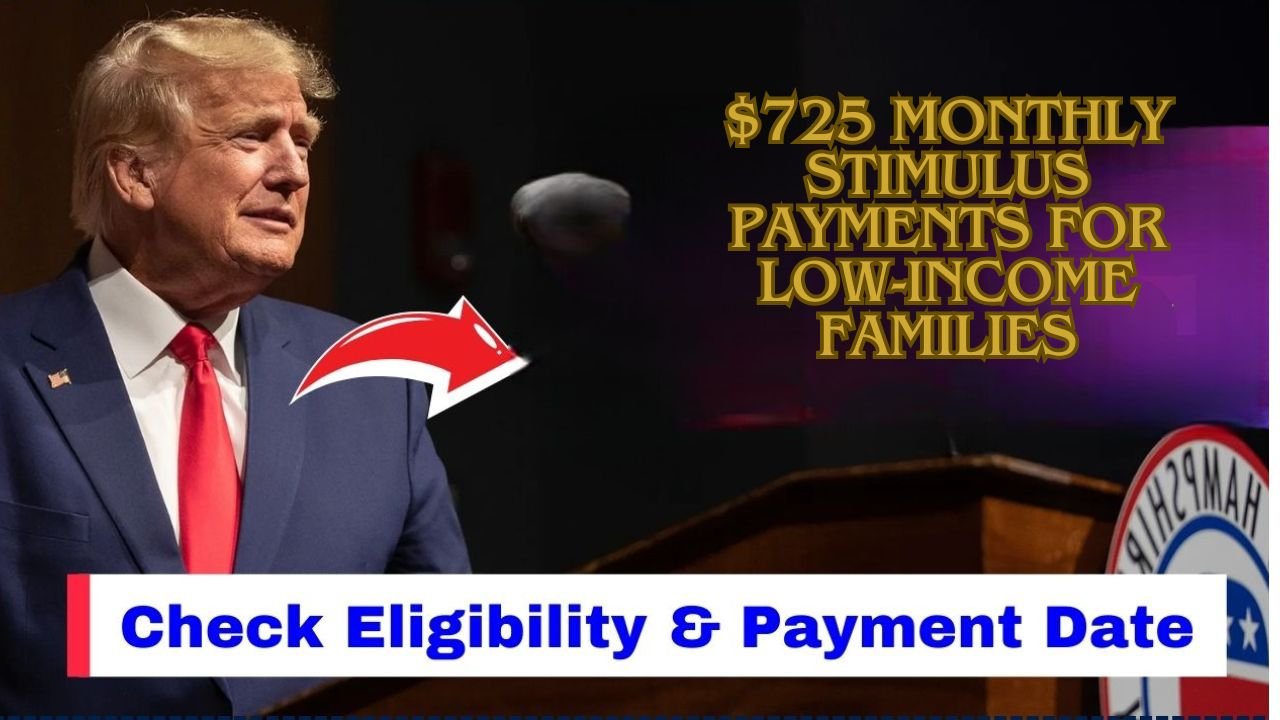The Sacramento Families First Economic Support Pilot (FFESP)TO check Eligibility for $725 has launched a new program that is aimed at ensuring regular economic support to distressed families. Under this program, the eligible families will be issued with a stimulus check of $725 per month for them to cover their needs like housing, child care, and food. The program targets low-income Native American and African American families in Sacramento County, California.
In this article, we discuss all the important aspects of this program, such as its purpose, eligibility criteria, how to apply, and schedule of payments. We will also learn how this initiative differs from other support programs that are in place across the U.S.
Purpose of the $725 Stimulus Check Program
The $725 monthly stimulus check program is just not a program for short relief. This program is part of a strategic system to reduce the poverty and the economic inequality gap in Sacramento County. The new initiative aims to provide long-lasting financial stability in the lives of marginalized families- Native American, African American-who have received the worst deals in Sacramento history.
End Poverty Economic Inequality: The plan empowers financially distressed communities and assists them in achieving economic sustainability.
Predictable Monetary Support: The monthly periodic disbursements help the family live without wondering whether they can afford housing, utilities, or groceries.
Financial Self-Ability: With fewer financial burdens, the family becomes more capable of acquiring education and job opportunities with a potential of leading to stable future.
Eligibility for the Stimulus check of $725
FFESP has made sure that this program will reach the neediest. To make sure of this, some eligibility requirements have been set. This is what qualifies families for a monthly stimulus check:

- Low-Income Status: Families have to qualify on the low-income standards set by Sacramento County. Evidence of income must be given when applying.
- Residency: Families applying must reside in one of the following ZIP codes in Sacramento County: 95815, 95821, 95823, 95825, 95828, 95838.
- Income Eligibility: Gross household income must be below 200 percent of the federal poverty guidelines.
- Family Composition: In this program, African American and Native American families living in these particular ZIP codes will be given preference.
- Children in the family: The family should have a child younger than five who lives with the family more than half the time.
Schedule and distribution of payments
The $725 monthly distributions are aimed to ensure families do not run out of funds.
Here’s everything you need to know about the schedule of distributions:

- Start date: Distributions will begin mid-December 2024.
- Duration: Families will get the distributions monthly for up to 12 months.
- Payment method: The money will be directly deposited into families’ bank accounts to ensure they receive it quickly and securely.
- Fixed payment dates: Although the exact dates have not yet been announced, families are encouraged to check for regular updates on the FFESP official website.
How to apply for the $725 stimulus check
Applying for the FFESP stimulus check is simple and can be done online. The application process is as follows:
???? Application process:
Go to the official website: Begin the application process by accessing the FFESP official website.
Check eligibility: Review the demographic, income, and residency requirements to ensure that your family fits the criteria.
Fill out the application form: Fill in all the correct information about your family, income, and residence.
Upload required documents: Upload a proof of income, residence such as a utility bill or a lease, and identification.
Get confirmation: After submitting your application, you will receive a confirmation email indicating the status of your application.
Documents needed to apply:
- Income proof: Your recent pay slips, tax returns, or documents showing government assistance.
- Residence proof: Your utility bill, tenant agreement, or household-related documents.
- Identity: Government-certified ID of all adult members of the household.
- Age of child: A birth certificate or medical records of children under five years old.
How is FFESP different from other support programs?
Unlike the federal stimulus checks, FFESP is a monthly support model, similar to other guaranteed income programs in cities like Stockton, California, and Jackson, Mississippi. They are designed to alleviate poverty and improve mental health and financial security for low-income families.
What makes FFESP unique is that it focuses on specific communities that have historically faced economic inequities, ensuring that money reaches where it’s needed most.
Conclusion:
The Sacramento Family First Economic Support Pilot (FFESP) is an important program for families facing the increased cost of living in Sacramento County. It is helping reduce poverty, economic instability, and support families to create a better future by offering a $725 monthly stimulus payment.
If you qualify, apply as soon as possible and check the official website of FFESP for updates. Continued financial assistance can make a huge difference in the lives of families, helping them to cover their basic needs and confidently plan for the future.
FAQS:
What is Sacramento Families First Economic Support Pilot (FFESP)?
FFESP refers to a program that offers monthly cash assistance of $725 to low-income Native American and African American families residing in Sacramento County.
A stimulus check of $725 a month: What is eligibility?
Areas served include zip codes of Sacramento, and eligible families must have incomes below 200% of the federal poverty level and have at least one child under the age of five.
When might the $725 payments begin?
$725 monthly payments will start coming in mid-December 2024 and continue monthly for 12 months.
How to apply for a $725 stimulus payment?
Visit the official FFESP website, check eligibility, fill out the online application form, and upload documents of income, residence, and identity.


